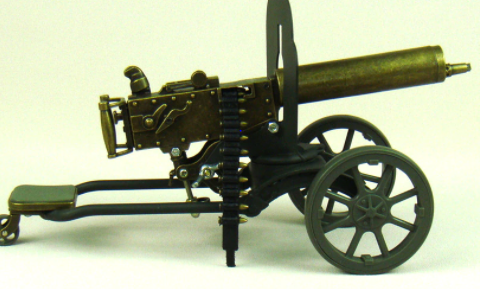
European Colonialism in Africa
By Idahosa Osagie Ojo
In most African societies, military conquest and imposition of colonialism was heralded by missionaries and explorers. In the Democratic Republic of Congo for example, the first set of explorers, which were Portuguese arrived in the early 1480s and several more followed over the next centuries and it continued into the twentieth century.
A.E. Butter, W. F. Whitehouse, D. Clarke, J. J. Harrison and Hassan with the Union Flag at north end of Lake Rudolf marking the border of Abyssinia (Ethiopia) and British East Africa (Kenya). 31 March 1900. © Scarborough Museums and Galleries
Today, the Harrison Collection is crucial in understanding various aspects of the colonial past. First, it shows the rich environmental and economic resources of Africa that have been lost due to poaching and other human activities including colonial exploitation vis-à-vis those in Europe during the period. Furthermore, the touring of the Africans and the narrative used to describe them are also instructive in understanding racism and how right from the first contacts of the missionaries and explorers it foreran the colonial conquest of the continent. They also have a bearing on the various injustices and ethnic cleansing that accompanied the European contact with the Africans. The psychological implications are still far reaching not only in Congo but throughout the whole of Africa. The socio-political implications of colonial rule in the Congo in particular and Africa in general are profound and not completely unravelled or understood.
African porters, South Africa 1899
Colonialism is the practice of obtaining political control over other people for economic exploitation. Inherent in this practice are violence, through which the government of the people are conquered and placed under control; racism that attempts to justify this cruel and repressive act; exploitative economic policies and outright thievery of the colonised people’s economic resources. Using the state of the art weapons of war such as “rocket-tubes, Dane guns, RML mountain guns, the maxim guns with the capacity to fire 3,000 rounds in 3 minutes and 3 seconds” among others, European nations killed several heads of states in Africa, dethroned and exiled more in the process of establishing colonial rule mostly in the last two decades of the Nineteenth Century, (1800-1900). [1]
To justify this act, the theory that the Europeans were better and more civilised than the Africans was promoted.
Although several factors led to European colonial rule in Africa, the principal culprits were the Industrial Revolution that began in 1760 and the consequential economic needs which fuelled the nineteenth century European imperialism. The whole of Africa became a target for colonial exploitation because of material expectations fired up by new knowledge of the riches in the “virgin continent.” The only desire of the colonialists in Africa, according to Joseph Conrad, was to tear treasure out of the land, “with no more moral purpose at the back of it than there is in burglars breaking into a safe.” [2]
Consequently, the search for treasure in Africa and raw materials for the industries brought a number of Europeans to the continent and the competition that arose from the trade eventually resulted in a situation where European nationals bickered for the possession of territories in the continent. [3]
A cannon machine gun
They used the superiority of their ships and cannon that were bequeathed by the industrial revolution to gain control of all the world’s waterways, starting with the Western Mediterranean and the Atlantic Coast of North Africa under the pretext of “civilising the natives” and by 1900, virtually all Africa had been colonised with many humans and economic resources in control of the Europeans.
About the author
Dr. Idahosa Osagie Ojo is a diplomatic historian in the Department of International Studies and Diplomacy, Benson Idahosa University, Benin City, Nigeria. He is currently a research fellow at the Department of History, the University of Hamburg. His scholarship focuses on diplomatic, military and colonial history of Africa.
References
Idahosa Osagie Ojo, (2021) British Colonial Rule and the Internationalisation of the Benin Bronze Artefacts, 1897 – 1960, Thesis submission to the Nigerian Defence Academy, Kaduna October
Joseph Conrad, (2008) Heart of Darkness, London: Blackwood's Magazine, 32.
Walter Rodney, (1972) How Europe Underdeveloped Africa, London: Pana Publishing, 84.


